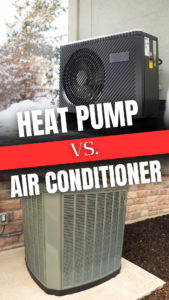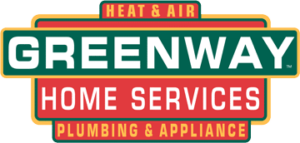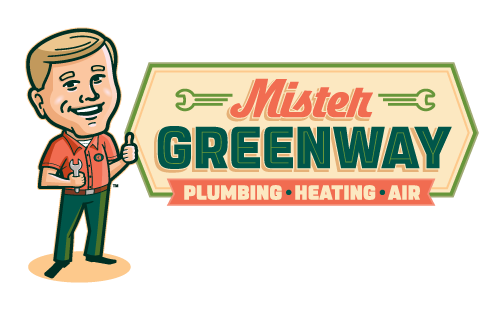 Choosing the right cooling system for your home isn’t just about comfort, it’s about efficiency, cost, and long-term performance. If you are deciding between a heat pump and a regular air conditioner, keep this in mind. A heat pump can heat your home. An air conditioner only cools.
Choosing the right cooling system for your home isn’t just about comfort, it’s about efficiency, cost, and long-term performance. If you are deciding between a heat pump and a regular air conditioner, keep this in mind. A heat pump can heat your home. An air conditioner only cools.
That sounds like a big advantage, but the right choice depends on where you live and how much you want to spend on energy.
In this article, we’ll break down how heat pumps and air conditioners work, their similarities, differences, and which system might be best for your home.
Key Takeaways
- Both heat pumps and air conditioners cool your home by removing heat from indoor air.
- Heat pumps also provide heating, while ACs require a separate system like a furnace.
- In mild climates, heat pumps are more energy-efficient than running both an AC and a furnace.
- Air conditioners tend to last longer because they don’t run year-round.
- Choosing the right system depends on climate, efficiency goals, and budget.
What Is a Heat Pump?
A heat pump is a two-in-one system that both heats and cools your home. Instead of burning fuel to make heat like a furnace, it moves heat from one place to another using refrigerant.
During the summer, a heat pump works just like an air conditioner. It pulls heat from inside your home and moves it outdoors.
In winter, it changes the process. It pulls warmth from the outside air, even when it’s cold, and brings it inside. This makes it an energy-efficient choice compared to traditional heating methods. However, in very cold climates, you may need extra heating.
Types of Heat Pumps
There are two main types of heat pumps:
- Air Source Heat Pumps – These transfer heat between indoor and outdoor air. They are the most common type and work best in moderate climates.
- Geothermal Heat Pumps – These use underground pipes or water sources to move heat. They are more efficient but come with higher installation costs.
What Is an Air Conditioner?
An air conditioner is designed solely for cooling. It works by absorbing heat from your indoor air and releasing it outside. An AC unit cannot provide heat like a heat pump can. If you live in a cold area, you will need a furnace or another heating source.
How It Works
The process is simple:
- Warm indoor air passes over an evaporator coil.
- The refrigerant absorbs the heat, cooling the air.
- A compressor moves the refrigerant outdoors, where the heat is released.
- The cooled air is circulated back into your home.
This cycle repeats until your home reaches the desired temperature.
How Are Heat Pumps and Air Conditioners Similar?
At first glance, heat pumps and air conditioners look and function almost the same in cooling mode. Both use refrigerant to absorb heat indoors and release it outside. They also have similar components, like compressors and evaporator coils. When it comes to cooling efficiency and energy costs, there’s little difference between the two.
Heat Pumps vs. Air Conditioners: The Key Differences
Heat pumps and air conditioners have some similarities, but they also have important differences. These differences affect how they work in various climates and situations.
Heating Capability
The biggest difference is that heat pumps provide both heating and cooling, while air conditioners only cool. Heat pumps use a reversing valve to switch between heating and cooling modes. In contrast, ACs require a separate heating system, like a furnace, to keep your home warm in the winter.
Performance in Cold Weather
Heat pumps are great in moderate climates, but they struggle in freezing temperatures. As the temperature drops, there’s less heat in the air for the pump to extract, making it less efficient.
Many homeowners in cold areas use a dual-fuel system. In this system, a heat pump provides the main heat. A furnace turns on when temperatures drop too low.
Lifespan and Maintenance
Heat pumps generally have a shorter lifespan than air conditioners because they run year-round. An air conditioner, used only in the summer, can last 10–15 years, while an air-source heat pump may last 10–12 years. Geothermal heat pumps last longer, with underground loops lasting 50+ years.
How to Choose the Right System for Your Home
 While both options can keep your home comfortable, several factors influence which one will work best for you.
While both options can keep your home comfortable, several factors influence which one will work best for you.
Climate Considerations
Climate plays a major role in whether a heat pump or air conditioner is the better choice. In mild to moderate climates, a heat pump is a great all-in-one solution. It provides efficient heating in winter and cooling in summer.
In places with freezing temperatures, a heat pump might not provide enough warmth. This means a backup heat source may be needed. In colder areas, a regular air conditioner with a furnace is usually the better and cheaper choice.
Cost Comparison
Upfront costs can vary depending on the type of system you choose. Heat pumps typically cost more to install than air conditioners, but they can save homeowners money in the long run by reducing heating expenses.
Air conditioners are usually more affordable at installation, but if you need a separate heating system like a furnace, the combined cost can add up. The best choice depends on whether you’re looking for immediate savings or long-term energy efficiency.
Energy Efficiency
Both heat pumps and air conditioners have SEER2 ratings, which measure cooling efficiency, but heat pumps also have HSPF2 ratings to indicate heating efficiency.
Generally, heat pumps offer better year-round efficiency in moderate climates. If energy savings are a priority, high-efficiency models with ENERGY STAR® certification can help reduce electricity bills over time.
Installation Considerations
Installation complexity varies between the two systems. Heat pumps require proper sizing and placement to operate efficiently, and geothermal models involve underground loop installation, which can increase costs.
Air conditioners are generally simpler to install, especially if your home already has a compatible furnace. A professional evaluation can determine the best setup based on your home’s insulation, ductwork, and layout.
Talk to an Expert
 Not sure which system is right for your home? The best way to make an informed decision is to speak with a professional.
Not sure which system is right for your home? The best way to make an informed decision is to speak with a professional.
At Mister Greenway, we make choosing HVAC easy. We look at your home’s size, insulation, and energy needs. Whether you’re considering a heat pump or an AC, we’ll help you choose a system that keeps your home comfortable year-round while maximizing efficiency.
Ready to upgrade your cooling system? Give us a call—we have your back!
FAQs
Are heat pumps more efficient than ACs?
For cooling, they are about the same. For heating, heat pumps are more efficient than furnaces in moderate climates.
Can a heat pump replace my furnace?
Yes, if you live in a mild climate. In very cold areas, you may need a backup heating source.
Do heat pumps require more maintenance?
Yes, because they run year-round, they may need more frequent servicing than an AC.
What’s the biggest downside of a heat pump?
They lose efficiency in freezing temperatures, which can lead to higher electricity bills.
Which system should I choose?
It depends on your climate, budget, and heating needs. If you’re unsure, a professional can help you decide.
Final Thoughts
Both heat pumps and air conditioners keep your home cool, but heat pumps also provide heating. The best choice depends on where you live, your budget, and your energy efficiency goals.
If you need help deciding, Mister Greenway is here for you. Thinking about upgrading? Give us a call—we have your back!
